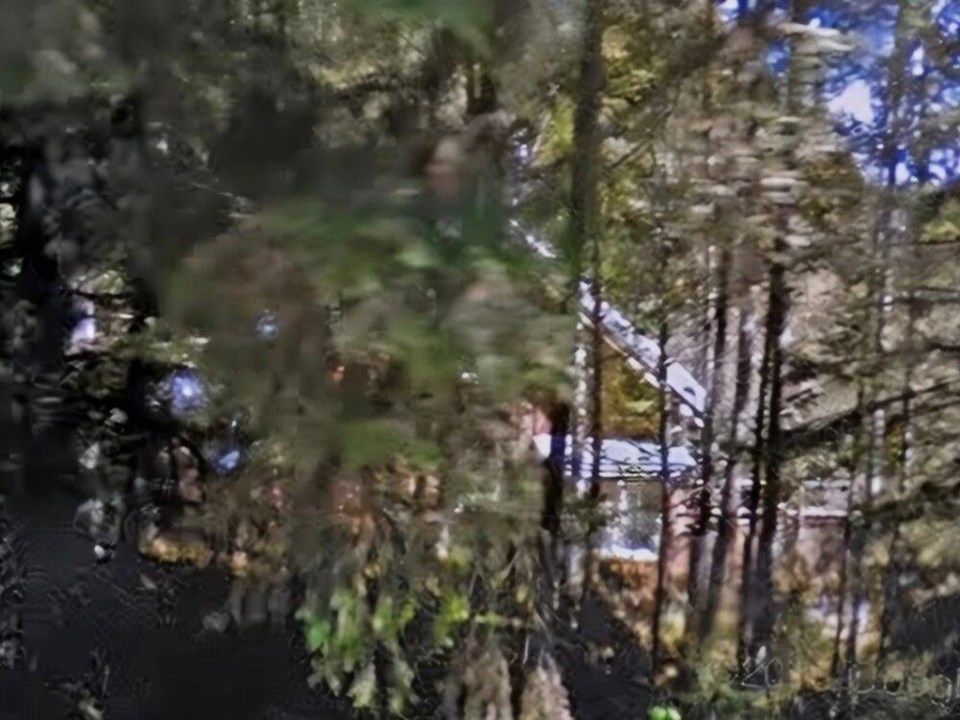The owner of a Salt Spring Island house denies wrongdoing in a court case in which the province has used a new law to demand an explanation of the source of the $1 million used to buy the property.
In a response filed in B.C. Supreme Court on Feb. 9, Alicia Davenport denies the money for the purchase in 2017 came from any unlawful activity. The province alleges it came from a $200-million international stock fraud through wire transfers from shell companies.
The B.C. government introduced new measures last year to combat money laundering that include so-called unexplained wealth orders. If successful in court, the orders put the onus on the alleged perpetrator to explain where money came from to buy their assets in cases where there is a suspicion of criminal activity or corruption.
Davenport’s response says that if the property at 435 Stewart Rd. was purchased with money from unlawful activity, she is relying on a section of the province’s Civil Forfeiture Act that allows the courts to provide relief if a forfeiture of property is not in the interests of justice.
According to Davenport’s filing in court, the basis for that relief is that she did not directly or indirectly acquire the property on Salt Spring Island because of alleged unlawful activity committed by her, and she did not know, and could not reasonably have known at the time, that the property was allegedly bought with proceeds of unlawful activity.
If the property was bought with money from the stock fraud, Davenport said she is an uninvolved interest holder.
She also argues that the house is not “an instrument of unlawful activity.” Since its purchase, Davenport says it has been used exclusively as a home for herself and her three children.
“Forfeiture of the Stewart Road property in whole or in part is clearly not in the interests of justice,” says Davenport’s response in B.C. Supreme Court.
Geordie Lee, also known as Skye Lee, Davenport’s former spouse, is also named in the province’s forfeiture case. He has not responded in court.
None of the allegations have been proven in court.
Davenport noted that in about July 2017, she and Lee agreed to a separation agreement that included proceeds of the sale of two properties in Victoria owned by Lee (both of which were mortgaged, according to property records) and a payment of $1.15 million from Lee. That money was used to pay for the four-bedroom, three-bathroom Stewart Road house on four hectares of property.
Davenport and Lee were divorced in September 2023, more than six years after she said they separated.
Under B.C.’s new law, the unexplained wealth orders must be applied for in each case through the courts and meet certain tests. If successful, the information from the orders can then be used to pursue civil forfeiture cases where the province aims to seize assets or money.
The orders have met criticism, including from the B.C. Civil Liberties Association, which has argued these types of measures undermine constitutional rights, have not been adequately tested and would be expensive to implement.
In the province’s lawsuit against Davenport and Lee, the province’s director of civil forfeiture alleges that $1.15 million was delivered between Oct. 30, 2017, and Nov. 2, 2017, in four wire transfers through a shell company to a West Vancouver law firm for a “purported” loan to Geordie Lee, and that those transfers were the proceeds of the unlawful stock fraud.
The Salt Spring Island property was bought outright for $1 million, with no mortgage, on Nov. 3, 2017, according to B.C. property records. The property is now valued at $1.8 million, according to B.C. Assessment Authority records.
“At all material times, any income lawfully obtained by A. Davenport and G. Lee was insufficient for the purpose of enabling the defendants to acquire or maintain the Stewart Road property, or the whole or portion interest in the Stewart Road property held by the defendants,” the province’s civil suit says.
Davenport, also known as Alicia Lee, is listed as a homemaker on B.C. land title documents. In February 2023, the owner name on title documents was changed from Alicia Lee to Alicia Davenport.
The province has a second civil forfeiture suit in which Davenport and Geordie Lee are named, which also alleges that money from the $200-million stock fraud was laundered through the purchase of another Salt Spring Island residence.
In that lawsuit, which was launched in 2019, Davenport and Lee have denied all wrongdoing and said they had no interest in the property at 391 Baker Rd. on Salt Spring Island.



